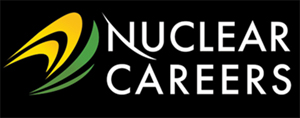The nuclear industry offers a wide range of engineering roles that span design, construction, operations, safety, and decommissioning — each playing a critical role in keeping nuclear technology safe, efficient, and sustainable.
Here’s a structured breakdown of the main engineering roles found across the sector:
⚙️ Core Nuclear Engineering Roles
- Nuclear Engineer – Designs, develops, and optimizes reactor systems, fuel cycles, and nuclear processes.
- Reactor Design Engineer – Focuses on the physical and thermal design of reactors, including core layout and safety systems.
- Fuel Engineer – Specializes in nuclear fuel design, performance analysis, and lifecycle management.
- Shielding Engineer – Designs radiation shielding for reactors, waste facilities, and transport containers.
🧱 Mechanical & Structural Engineering
- Mechanical Engineer – Designs and maintains mechanical systems like pumps, valves, turbines, and pressure vessels.
- Piping Engineer – Develops layouts and specifications for piping systems in power plants and fuel cycle facilities.
- Structural Engineer – Ensures that containment buildings and plant infrastructure meet seismic, load, and safety standards.
- Materials Engineer – Studies how metals and alloys perform under high temperature and radiation conditions.
⚡ Electrical, Control & Instrumentation Engineering
- Electrical Engineer – Manages power distribution, generators, and electrical safety systems within the plant.
- Instrumentation & Control (I&C) Engineer – Designs and maintains systems that monitor and control reactor performance.
- Software/Systems Engineer – Develops digital control systems and safety-critical software.
- Automation Engineer – Integrates robotics and remote handling systems, especially in decommissioning and waste management.
🌡️ Process, Safety & Environmental Engineering
- Process Engineer – Optimizes chemical and physical processes in fuel fabrication, reprocessing, or cooling systems.
- Safety Engineer – Conducts risk assessments and ensures compliance with nuclear regulatory and safety standards.
- Radiation Protection Engineer – Monitors radiation exposure, shielding performance, and safety procedures.
- Environmental Engineer – Manages emissions, waste, and the environmental impact of nuclear facilities.
🧰 Construction, Commissioning & Maintenance Engineering
- Project Engineer – Oversees engineering deliverables from design through construction and commissioning.
- Commissioning Engineer – Tests and validates systems before operational startup.
- Maintenance Engineer – Ensures reliability and longevity of plant systems through predictive and preventive maintenance.
- Decommissioning Engineer – Plans and executes safe dismantling of reactors and facilities.
🔬 Emerging & Specialized Roles
- SMR/AMR Design Engineer – Works on small modular and advanced reactor technologies.
- Hydrogen/Nuclear Integration Engineer – Explores coupling nuclear plants with hydrogen production.
- Data & AI Engineer (Nuclear Applications) – Uses predictive analytics and digital twins for plant optimization.
- Fusion Engineer – Focuses on plasma systems, magnets, and materials for fusion energy development.
Nuclear Engineering Career Framework
🎓 Entry Level (Early Career / Apprenticeships / Graduates)
Typical Roles:
- Engineering Technician / Apprentice (Mechanical, Electrical, or Process)
- Junior Design Engineer
- Assistant Project Engineer
- Radiation Protection Technician
- Maintenance Technician
Focus Areas:
- Hands-on plant operations and system maintenance
- Learning safety standards and nuclear regulations
- Supporting senior engineers in design and documentation
- Building practical knowledge of reactor systems and site processes
Qualifications:
- Level 3–5 Apprenticeships, HNC/HND, or Bachelor’s in Engineering (Mechanical, Electrical, Nuclear, Chemical)
⚙️ Mid-Career (5–10 years of experience)
Typical Roles:
- Nuclear Engineer / Systems Engineer
- Mechanical / Electrical / I&C Engineer
- Project Engineer / Construction Engineer
- Process or Safety Engineer
- Radiation Protection Engineer
Focus Areas:
- Technical leadership of systems or components
- Process optimization and reliability improvements
- Managing projects, budgets, and compliance activities
- Mentoring junior engineers and apprentices
Qualifications:
- Chartered Engineer (CEng) or working toward it
- Advanced technical certifications or postgraduate study
🧠 Senior / Specialist Roles (10–20+ years of experience)
Typical Roles:
- Principal or Lead Engineer (Mechanical, Electrical, Process, etc.)
- Chief Nuclear Engineer / Design Authority
- Safety Case Engineer / Regulatory Affairs Lead
- Decommissioning Project Lead
- Reactor Design Specialist (SMR/AMR/Fusion)
Focus Areas:
- System-wide design and lifecycle management
- Strategic oversight of safety and regulatory compliance
- Innovation in SMR, hydrogen integration, or digitalisation
- Representing the organization to regulators and industry bodies
Qualifications:
- Extensive project leadership experience, advanced degrees, and Chartered or Fellow status
🚀 Executive / Strategic Leadership
Typical Roles:
- Head of Engineering / Technical Director
- Programme Director (Nuclear New Build, Decommissioning, or Fusion)
- Chief Engineer / CTO (Energy or Nuclear Division)
Focus Areas:
- Setting engineering strategy and innovation agendas
- Managing large, multi-discipline programmes
- Leading cross-sector collaboration and workforce development
